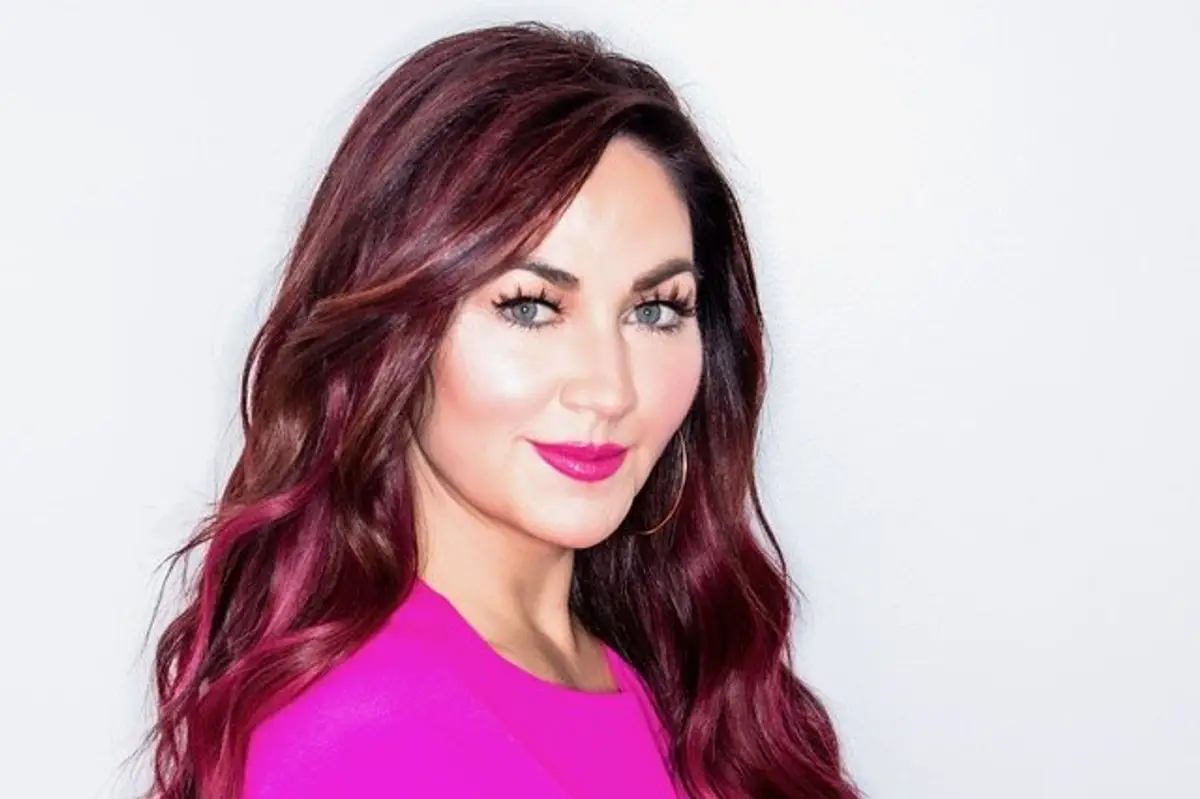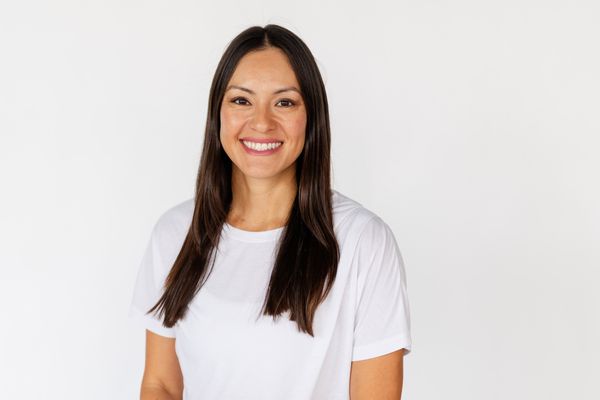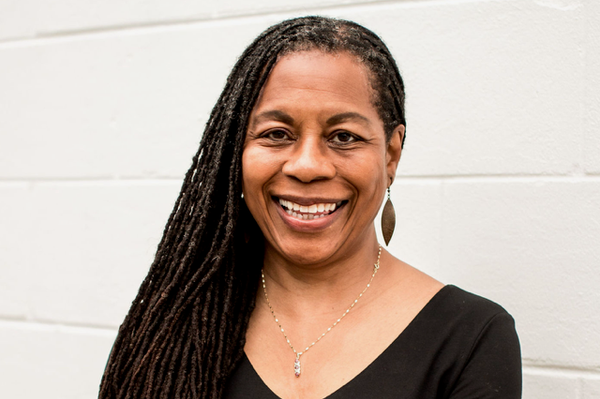Cindy Eckert is passionate about a lot of things. Near the top of her list is your sex drive.
Eckert is the founder and CEO of Sprout Pharmaceuticals — the company behind the first and only FDA-approved pill for female hypoactive sexual desire disorder (HSDD), or low sex drive.
Eckert made history when the drug flibanserin (Addyi) was approved. But like many advancements in women's healthcare, the road wasn’t easy. For one, it took Eckert six years to get FDA approval for Addyi. To put that into perspective, Viagra was approved in six months (more on that below).
In 2015, Eckert sold Sprout Pharmaceuticals for $1 billion. But when the company that took over failed to launch the drug, Eckert couldn’t just walk away and let all those pink possibilities collect dust somewhere. By 2018, she regained her role as CEO and launched Addyi herself.
The “pink pill” disrupted the medical industry but it’s just one of the projects Eckert is part of. She’s also founder and CEO of The Pink Ceiling, an organization that runs The Pinkubator, which helps fund innovations in women’s healthcare. One example: the world’s first flushable pregnancy test.
Eckert is perhaps most passionate about helping women succeed. As you can probably imagine, our “15 minutes” turned into nearly an hour talking about everything from low libido to what we can expect from The Pinkubator in the near future.
Our interview follows, edited for clarity and length.
HealthyWomen: It took you six years to get FDA approval for Addyi. Why did it take six months for Viagra to get approved?
Cindy Eckert: It's quite simple. We value sexual satisfaction for men culturally and dismiss it for women. I think that's a historical truth. I’d like to say that it’s changing, but in order for the blue pill to have received rare fast track status for a six-month approval, male sexual satisfaction was deemed to be such an important unmet medical need that we reviewed a solution for it on an accelerated timeline.
Erectile dysfunction is men’s most common sexual dysfunction. HSDD is the most common sexual dysfunction in women. And yet, it took just six months compared to six years to get a treatment for erectile dysfunction approved. It speaks volumes to how we have valued sexual satisfaction for men versus women. And really, when you think about the data, more women than men actually suffer from sexual dysfunction — 43% of women compared to 31% of men. But we don't see it as an important need, and therefore innovation is so far behind.
HealthyWomen: From comments online and social media, it seems a lot of women don’t even know sexual dysfunction is a thing — they think that the loss of sex drive is just part of aging.
Cindy Eckert: In women’s health, I’d like to replace the word normal with common. There is a great survey by a woman named Marcella Hill, and she’s been very open online about her libido … She said she felt dead inside. She asked her doctor if there’s anything she can do. And she asked other women what their doctors said. And a majority [of the doctors] told the women their lack of interest in sex drive is normal. They said find a different partner. Schedule a date night.
Zero of them said it could be biological and, for that, we have a solution. Again, we can have discussions about date nights and those things, but not at the expense of biology.
HealthyWomen: After Addyi was approved by the FDA, you sold the company for $1 billion. (Big congratulations.) You’ve since gotten the company back and relaunched the drug on your own terms. Why was this important to you?
Cindy Eckert: It was an entrepreneur's dream come true to find a global company who could make this [drug] accessible to all of the women who needed it but for reasons in their own company, they never launched it. I was crushed.
And I deeply felt that I was letting women down because I was fortunate enough that so many women had shared their stories with me and people let their guard down and they shared something very personal. And so I just decided — not on my watch.
So, I'm so proud that I went back to the company. I said, “Thank you. Give it back. I'm going to launch it.” And now, to watch how many women’s lives it’s already impacted for the better — that’s what it was always about in the first place, right?
I certainly didn't do this to get a drug approved. I did it so that we would level the playing field by changing the conversation about women and sex. And so the women who need help could get it easily.
HealthyWomen: What kept you going through the tough times?
Maybe I should have known the road to the first drug for women’s pleasure would be a bumpy one. But I didn't. Yeah, honestly, I didn’t. I was excited. It’s science. It’s clinical trials. It’s proving something.
The science has fueled me to keep going.
HealthyWomen: Tell us one thing you want women to know about Addyi.
Cindy Eckert: It’s not female Viagra — it’s so much more interesting! Addyi is believed to work on the drive center of the brain, which results in more desire for sex, less distress and ultimately more satisfying sex.
The fact that the only thing the media could compare us to when we got approved was the most famous male sex drug has sometimes created laughable misunderstanding about the difference between the blue pill and the pink pill.
Once women and doctors know how Addyi works, they understand the many ways in which Addyi isn’t about being on demand for a sexual act at all. It’s about that desire/stress center of the brain being in an optimal place when the moment is right.
HealthyWomen: Have you noticed a shift in the way we view women’s sexual health since you first started on the journey with Addyi?
Cindy Eckert: The shift that’s happening in women’s health is undeniable. And it’s happening because women are demanding better. I’d love to say it’s because the medical establishment has woken up and they’re proactively discussing this with women. That’s not true. Women are walking in and demanding, frankly, what they deserve.
Literally the first headlines around Addyi were along the lines of “Female Viagra … Isn’t That Jewelry?” It’s unthinkable that that was less than a decade ago. Today, women tag their partners in ads for Addyi and publicly declare, “This is me!”
HealthyWomen: Tell us about the idea behind The Pink Ceiling.
Cindy Eckert: Well, it’s everything I wanted but didn't have access to when I was starting companies. As a founder, I can get to an outcome and I can reach my hand back and get more founders to that outcome, and they can reach their hands back and get more founders that outcome.
I'm so grateful that people share their wild ideas with me of how they want to change the world. I see it as a great privilege to be able to do it and hopefully in some small way contribute to changing women’s health on a much greater basis.
HealthyWomen: What can we expect to see next from The Pinkubator?
Cindy Eckert: One of our companies just got clearance on a device that will revolutionize the epidural. It’s a mapping device for the spine that will guide you to exactly the right place the first time. It will change the patient experience and frankly change the cost of healthcare.
HealthyWomen: What’s your advice for the next innovator or person who may be looking to start a new career later in life?
Cindy Eckert: You’ll never look back when you bet on yourself. I think people would be surprised how willing others are to help them if they just ask. And look to social media. Maybe not everybody will answer you, but what’s the harm in trying?- About the Change to the Female Libido Pill Warning - HealthyWomen ›
- Flibanserin: Will It Ever Become the Female Viagra? - HealthyWomen ›







